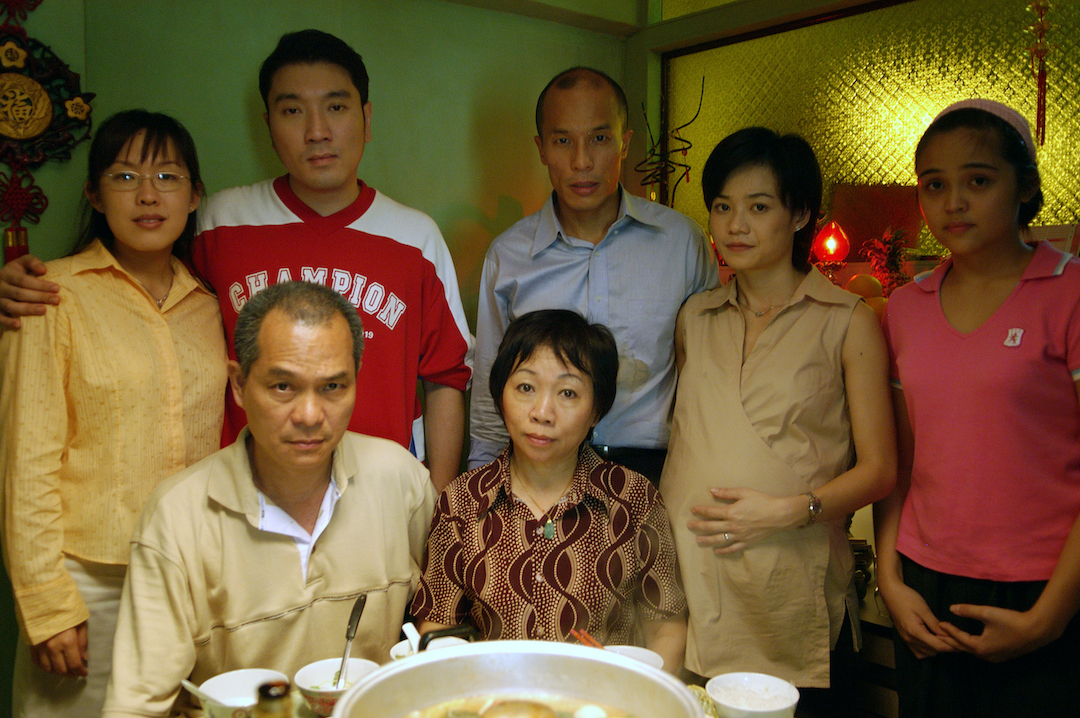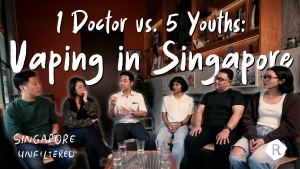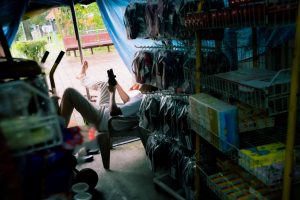All image credits: Singapore Dreaming / Woo Yen Yen, Colin Goh
Tackling the issue of class in local films is a difficult subject. As the backlash towards shows like Crazy Rich Asians and Singapore Social has demonstrated, Singaporeans can be sensitive and particular towards the portrayal of class.
And why not? In recent years, the negative ramifications of social inequality has culminated in CNA documentary ‘Regardless of class‘ and Prof. Teo Yeo Yenn’s This Is What Inequality Looks Like.
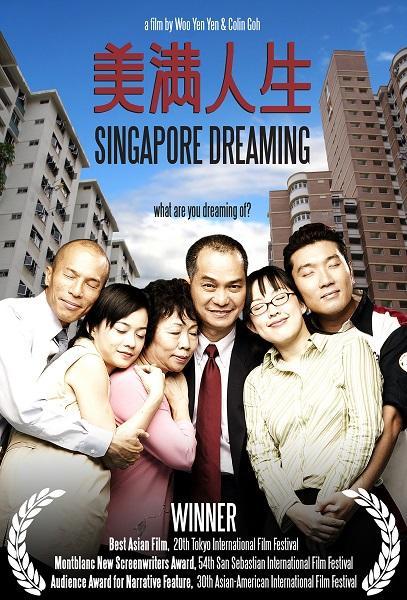
Since I had plenty of TV time this lockdown, I decided to rewatch one of my favourite local films, Singapore Dreaming, a superb masterpiece that portrays Singapore authentically and tackles the issue of class divide astutely. Conversely, I was curious as to how relevant the film, which was made 14 years ago, remains to this day.
Confronted with old images of Singapore—our drab housing landscape looking pretty much the same—and aside from advances in public transport and telecommunications (think of the non-smart phone days) … it seems nothing else has changed on the cultural front. The film’s central focus is the uniquely materialistic Singaporean dream, the 5 C’s: condo, car, country club, cash and credit card.
What’s beautiful about the film is the complexity of its characters: not all of them pursue this ideal ardently. Strikingly, the mother (Siew Luan) and the fiancée (Irene) showcase the collateral damage inflicted due to the actions of their respective partners.
Some of the characters acknowledge the necessity of materialistic wealth but resist it in their own ways, as portrayed by the married couple (Mei and CK). Mei is driven to desperation out of her desire to give her child a lavish upbringing, while her husband CK is pulled along reluctantly, and castigated by her for not acceding to the reality of the 5 C’s.
There are many strands of the movie that I admire. Read simplistically, the show may seem to portend certain platitudes:
i) wealth does not beget happiness;
ii) the chase for unbridled wealth can destroy your personal relationships,
iii) when it comes down to it, family is most important.
You would expect this film to receive more praise from members of the establishment—it only received an endorsement from former President, S.R. Nathan—but I suspect that the main reason it did not is that the show’s ultimate message is critical of the existence of class itself.
And the unfortunate truth is, intentionally or not, the harmful effects of the class divide continue to be reinforced by the establishment.
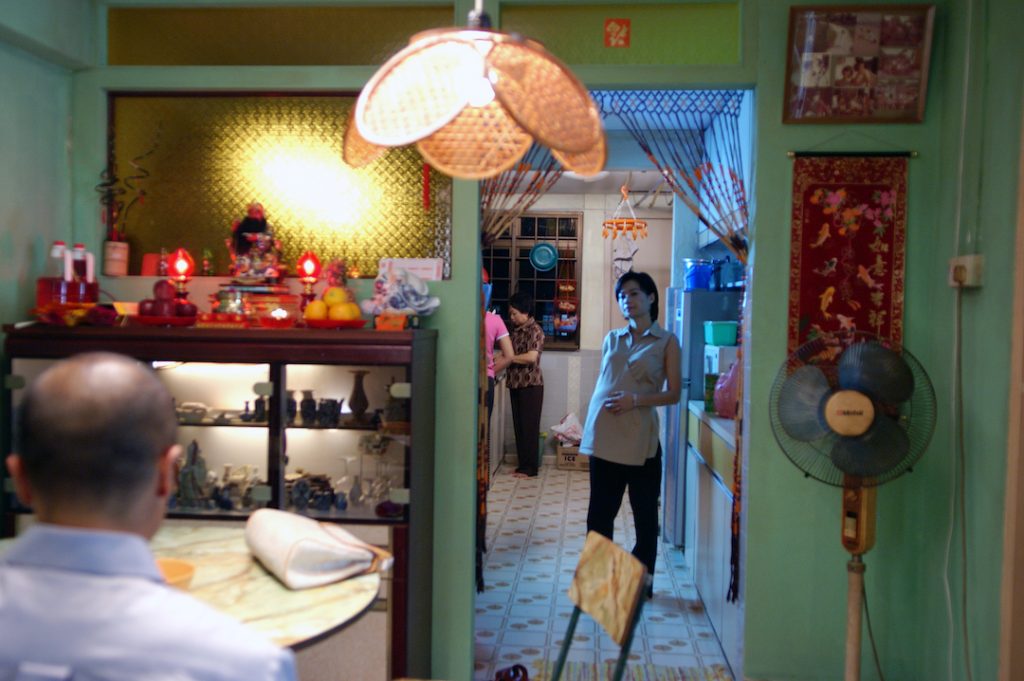
Class Difference Hurts Us All
Throughout the film, the ubiquitous poignancy of class status is portrayed vividly by the characters who aspire to climb the social ladder.
When the father figure (Poh Huat) finally has an opportunity to obtain a country club membership, he is portrayed ruefully as a fish out of water. He lacks the linguistic polish (as his English isn’t refined), he buys a suit and gets chastised by his wife for wearing it in the hot weather, and he reinforces this by offering to give more money than his inexperienced son (Seng) asked for in building a business. He delivers the line, “Want to start a business, must go big!” with voracity, underlining that it is not enough to be meekly successful; you have to go bigger than everyone else.
Like father, like son, Seng echoes this sentiment when he explains to his fiancée why he buys a luxurious car despite not working.
The allure of country club memberships may not be as relevant anymore. According to this article, millennials, unlike our forefathers, no longer rely on country clubs for their facilities or to secure their social status. But it doesn’t mean social status isn’t attractive altogether. People now just rely on modern means (like filling your Instagram with pictures of your trip to Maldives, thousand dollar sneakers, and your day at an exclusive golf course).
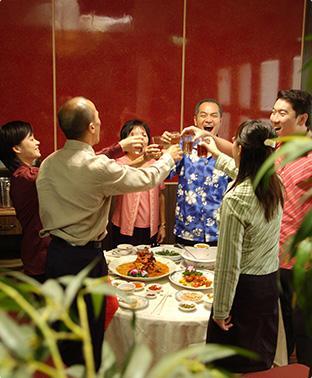
Poh Huat, as low-class as the character is meant to portray, isn’t dumb. He knows image and language matters—reaffirming the reality that we distinguish class from many other things: the way you speak or dress, the music you listen to, the places you travel to, where you shop.
In other words, Poh Huat, like you and I, understands that the lower class “have to be somebody else” to blend in with the upper class.
While the above speaks to the intense social pressure to look rich, the other characters face the material reality of being the underclass. Despite being physically encumbered due to her pregnancy and having to sort out her father’s funeral, Mei gets pushed around and undermined by her boss and his wife. Seng comes back to Singapore from America, misled by those around him into believing that studying for an American degree is all it takes to succeed, but is crushed to find out a non-Ivy league degree amounts to nothing in our little red dot.
To compound matters for Mei, her husband CK wonders if she still respects him for not bringing back enough money from his insurance job. There isn’t really a moral resolution for this character’s arc since the couple is saved by the generous amount of money left behind by Mei’s mother.
But this situation is representative of a very real moral dilemma: how do we reckon with the social expectation that the man should be the major bread-winner? Is it simply a matter of him “not working hard enough” as is persistently rationalised by Mei?
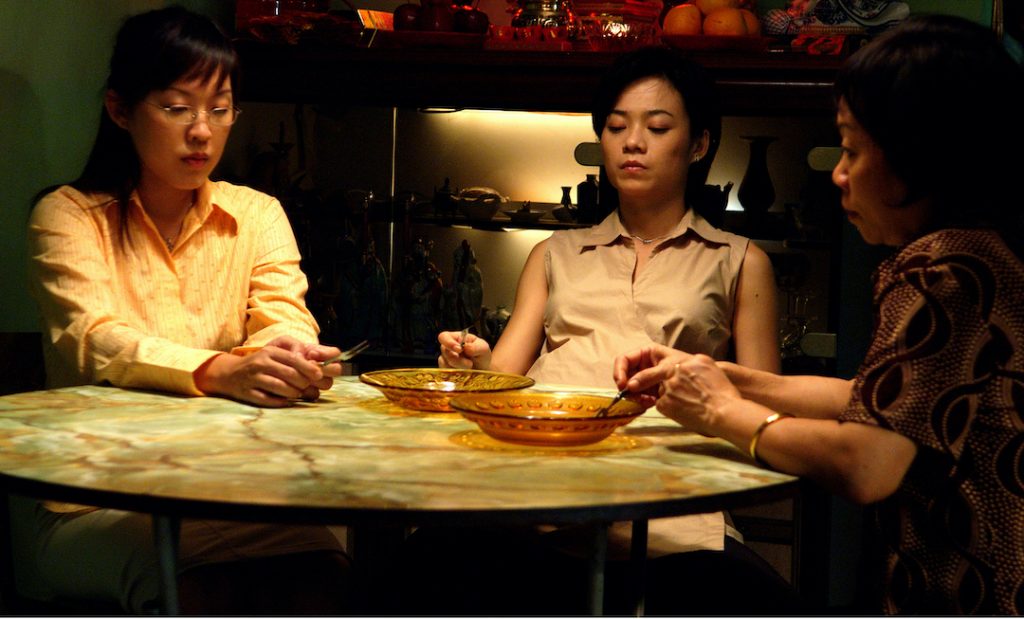
Singapore is an expensive city and very few families can support themselves with a sole breadwinner. Consider the outrage to a 2018 New Paper article—which has since been taken down—that interviewed a middle class family with a five-figure monthly income that found it hard to make ends meet. We constantly look to upgrade and boost our material well-being because it is never enough.
In such an environment, it becomes easier to rationalise that people like CK are lazy and not working hard enough. Instead of examining the viability and emotional well-being of people who work in these industries, we criticise others for not being diligent enough to be their own boss, and we turn on our own family members for not becoming employee of the year.
And what happens to those who don’t follow these aspirations?
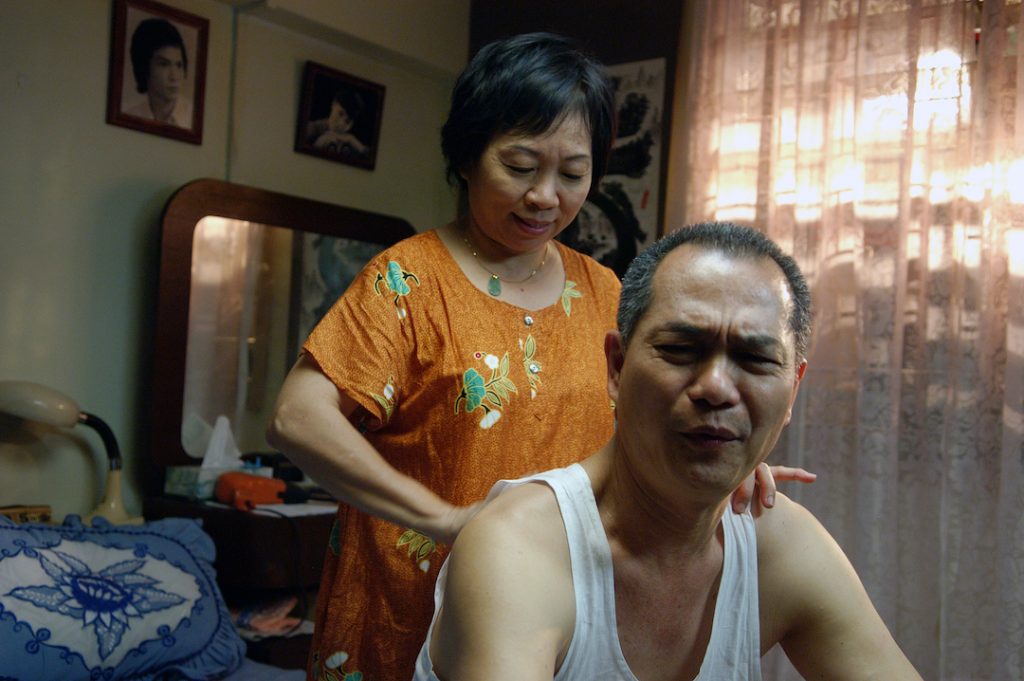
Woe To Those Who Resist
Another crucial aspect of the film is that most of the characters have had their aspirations questioned. The emotional resolution for them is often a bittersweet one as everyone pays a price in their own way.
For Irene, her ambition to get married and have a child represents the prototypical Singaporean female’s dream. Very bluntly, the film states that she is approaching her 30s and has a penchant for taking photos of children in public. Demonstrating her utmost fidelity to Seng by supporting his education with her own money, she is unfortunately devastated after finding out about his deceitful act and leaves the family.
For Siew Luan, not only does she lose her husband Poh Huat unexpectedly, she is confronted with the disturbing fact that he has been harbouring another family, and has to contend with her two dueling children for the inheritance money. She puts up an act for Seng, leaving him to wallow in his own financial troubles, and sneaks away to follow her own life in Malaysia unbeknownst to her children.
In both instances, we see rather uncharacteristic outcomes for a family-positive film. Irene forsakes her dream of a family as she can’t forgive Seng. Irene leaves her children to chase her own dreams, on the one hand, leaving Seng in the lurch somewhat as a punishment and on the other, giving financial support to her husband’s other family.
But this is also why I had the greatest sympathy for her as throughout the film, she is chided by everyone around her; she can’t speak English, she doesn’t relate to their aspirations to be rich, and she is perceived to be only good for housekeeping (with the added emphasis of making herbal tea). Her final act of rebellion is poetic justice for those who have overlooked her role, and certainly not something most people would approve of.
Imagine that. Your mother leaving the family to chase her own dreams, leaving her son to drown in his financial debts. The picture is so at odds with the government’s policy stance of family “as the first line of care and support”.
Yet, with declining nuclear families and increasing singlehood, the moral dimensions of this question has made it an imperative one for us. Is relying on extended kin like nephews and cousins the answer? It might have been a solution in a distant past when the cost of living was more equitable. But with increasing fragmentation of the extended family unit, this seems unlikely.
We need to think beyond the family unit, “lest it becomes a liability to be connected to a person,” as articulated by sociologist Paulin Strauglin. We need to have open critical discussions about the institutional structure of our country and the values it engenders.
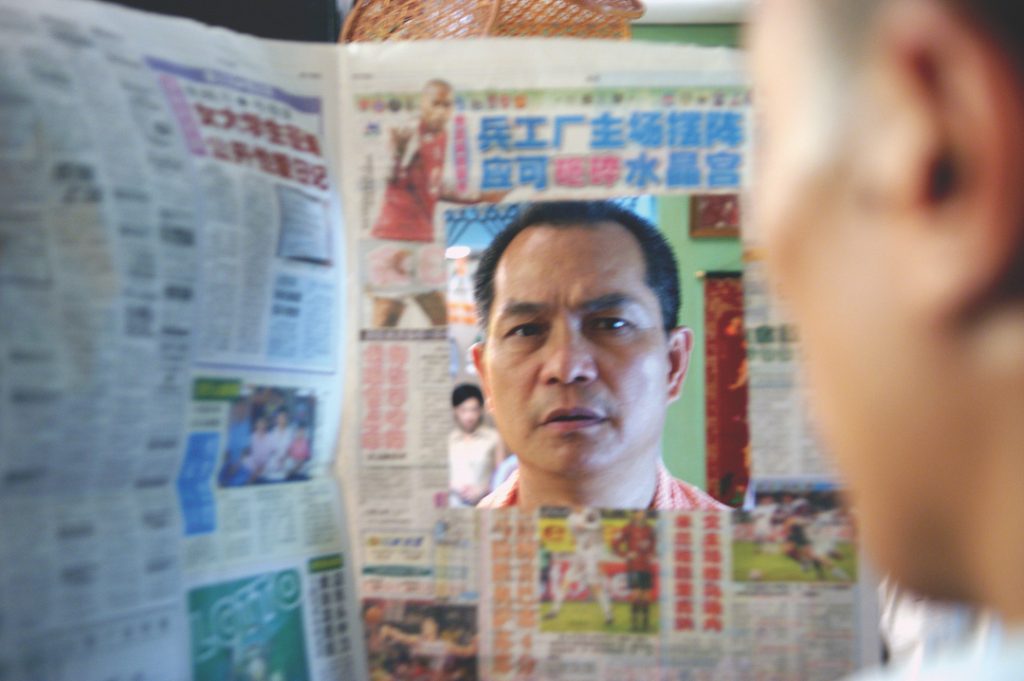
It Starts With A Dream For All
Singapore Dreaming opened a window into expanding critical public discourse on issues of class status. It showed us that the 5 C’s are a unique Singaporean concoction. Because of increasing social inequality for the past few decades, it is worth examining the current state of affairs: how do Singaporeans feel about inequality and class? Do we care enough to act decisively on it? And what dogmas are holding us back?
Perhaps disappointingly, there are signs that little has changed. According to this 2019 LKY School of Public Policy opinion poll, it was found that “while Singaporeans may like or dislike their own place on the social ladder, they do not necessarily see this as a problem inherent in the system itself.”
In itself, this may not seem like a tangible problem. But it can have implications on one’s patriotism. Even Senior Minister of State Dr Janil Puthucheary expresses concern that compared to 76 per cent of the higher classes, only 50 percent of the lower classes felt proud to be Singaporean. If we wish to not exacerbate feelings of discord and social divide, we need to address it with substance and vigour.
But as sociologist Teo Yeo Yenn pointed out, “Just as thinking about gravity differently would not stop a ball rolling downhill, pretending differences don’t exist isn’t going to magically make the differences disappear.” We can’t simply out-think ourselves out of this conundrum and “telling people to to be nice and respectful toward one another” as cited by Prof Tan Ern Ser isn’t a sensible solution. We have to scrutinise our structural policies and the spirit of our First World at all cost economic agenda.
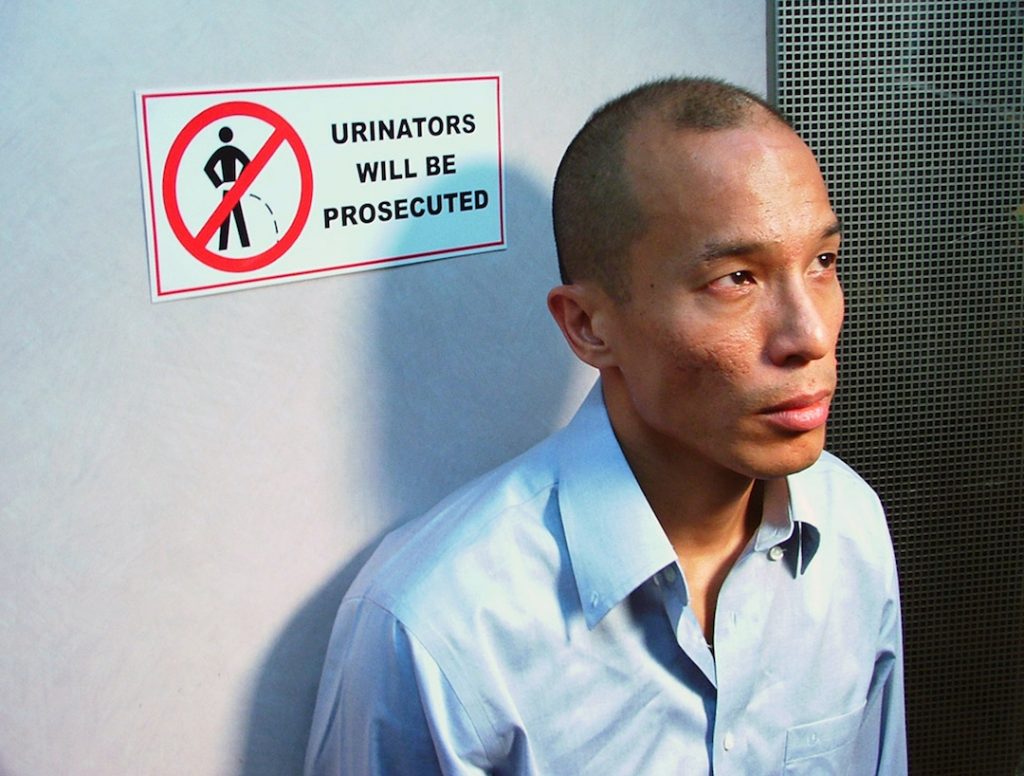
Consider the plight of Seng. Upon my first viewing, his role was undeniably as the unsympathetic incorrigible ‘villian’ of the movie. Upon second viewing, I have to concede the character’s arc deserves a more nuanced interpretation. Instead of seeing him as someone with malicious intentions, he is actually the victim of the ‘Singapore Success Story’.
Whether it came from Mei’s boss, Poh Huat, or the unrevealed job interviewer, Seng was constantly inundated with the mantra that it only pays well to be among the elite. He then reacted to these implicit rules by attempting to gain wealth, forgetting all about self. Own a sports car, obtain a prestigious degree, build a successful business. These were the definitive ways to be regarded as a model citizen, or else your own family and peers will look down on you.
As articulated by Stanley Tan (chair of National Volunteer and Philanthropy Centre), “[o]ur success is the main culprit that has eroded our soul … Our system has become too rigid and directive. The design has taken over and become the master instead of being the tool. We don’t need to discover anymore. That’s our flaw. We don’t trust ourselves anymore. We trust our plans more than we trust ourselves.”
In another poignant scene, we see CK in dialogue with a mainland Chinese hostess. Juxtaposing the working struggles of Singaporeans against foreigners, we are treated to a framing of CK’s challenges as an insurance agent as symptomatic of people working in these gig economies: unstable, unlikable, and uninspiring.
The Chinese hostess tries to ground him back into reality: there are other more destitute people working hard to make a dream, whereas people in his shoes sacrifice their dreams to make a living.
But there is a structural economic reality behind his plight: being a musician, however talented or not, is not the most viable of careers in technocrat Singapore. The paper chase has become the only definable path in our country, in which all the other characters lament and see no other recourse (e.g. Poh Huat belittles Mei for being a secretary). That’s why we have constant debates about the viability of chasing an artistic career or the need to raise the income of blue-collar workers.
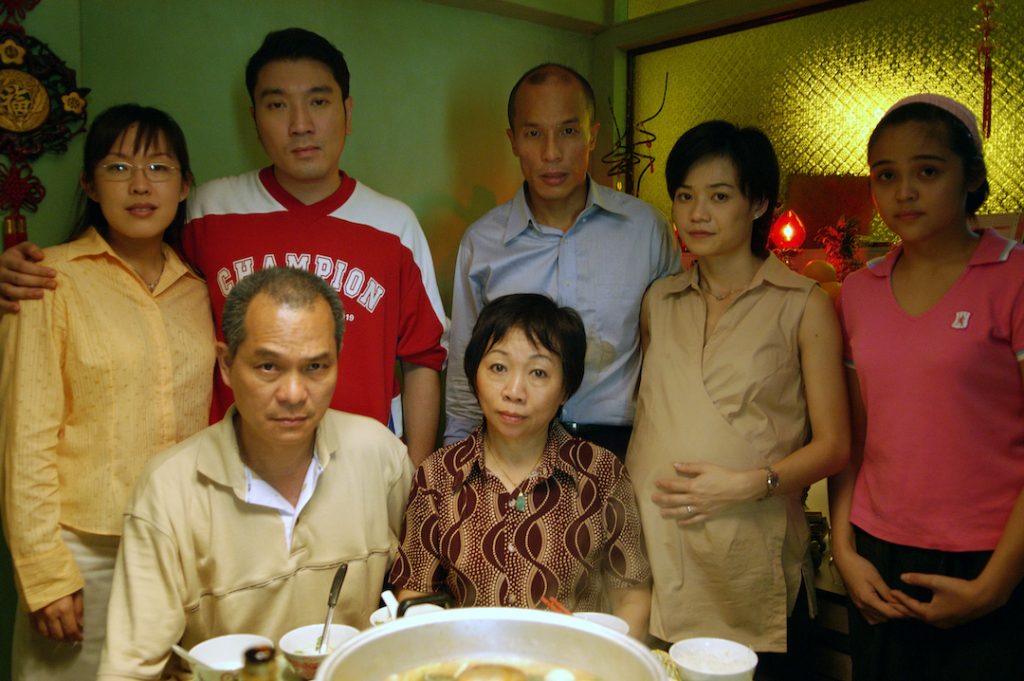
The good news is President Halimah Yacob has stated that our national priority is to be “a nation of opportunities” where we can “pursue dreams, chart fulfilling careers and lead meaningful lives.”
The other good news is COVID-19 pandemic has brought out the empathy lying dormant in all of us. It is heartening to see that most Singaporeans support higher wages for essential workers. Perhaps more of us will realise the benefits of tackling inequality after this pandemic, as expressed by ST Editor-at-large Han Fook Kwang. However, this framing of our desire to pay more is a very narrow one and doesn’t question the spirit of the broader system.
To me, the answer to why we keep running around in argumentative circles lies in the most poignant scene of “Singapore Dreaming”. When Mei castigates CK for his lack of resolve in improving their financial status, she reprimands him with the statement, “Everywhere is like that!”. This key phase epitomises the mental roadblock for Singaporeans: we think we are simply following what the rest of the world is doing.
But that is simply not the case. We can decide for ourselves what kind of class system and values we want to live and promote. Knowing that we are facing an uncertain future due to the COVID-19 pandemic, this is an opportune time to re-evaluate the kind of values produced by our institutions.
Why is it about us paying more, not companies and the elite profiting less?
Why is it not about improving the tax structure to be more progressive, as suggested by Singaporean economists like Donald Low?
Can we measure the heart of Singapore not with GDP but alternative measures like the Genuine Progress Indicator or Gross National happiness?
Can we value our creative artists and promote our local arts industry so that they are not ranked as number #1 non-essential?
Why don’t we begin to entertain the possibility of what Prof Tommy Koh called a “classless society?”
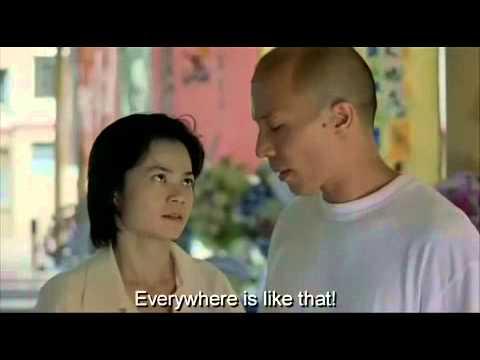
Fulfilling our dreams is not just about doing things for ourselves. Self-actualisation also acts as the social glue that ties us together as a cohesive family: my country values artists, my son wants to be a musician, and everyone respects and supports him.
There are moments within the film that hearken back to the notion that family is most important, such as when Mei and Seng poignantly recall a childhood memory. Siew Luan’s concluding arc also illustrates that discovering ourselves is what ultimately counts. This is how we build on our uniqueness and authenticity if we are able to discard the blinders of class and materialism.
Singapore Dreaming is the brainchild of Colin Goh and Yen Yen Woo. It’s their dream of a Singapore that can overcome its myopia of worshipping the materialistic god.
After all, no two dreams are alike. Perhaps if we have a Singapore that provides for all aspirations, we can dream of a better Singapore.
Is it ‘class warfare’ to acknowledge that class does indeed exist in Singapore, and that it has created divisions within society? Tell us what you think at community@ricemedia.co.

